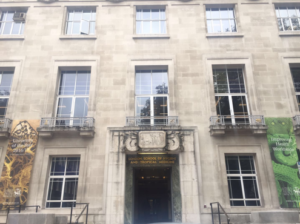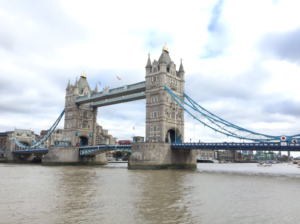Developing new Bayesian models in London
I am a PhD student at the Department of Biostatistics of the University of Oslo. I had stayed in London for four months funded by the NORBIS, as a visiting PhD student with the group of Dr. Alex Lewin, who is Associate Professor in Biostatistics at the Department of Medical Statistics at the London School of Hygiene & Tropical Medicine.
London School of Hygiene & Tropical Medicine, London, UK
I was collaborating with Dr. Alex Lewin and Dr. Marco Banterle on new Bayesian models for drug sensitivity prediction and integration of multi-omics data. The developed computational tools for the analysis of these data can consider the intrinsic relationships between the various omics data sources and also between different anti-cancer drugs, and generate new biological knowledge by helping us to identify which omics data sources and which individual features are most predictive for the sensitivity of which (classes of) drugs.
We have adapted a promising modelling approach, that was previously developed in Dr. Lewin’s group, to our situation. We have established a new Bayesian model framework for drug sensitivity prediction and drug targets identification. The new Bayesian model uses Seemly Unrelated Regressions for estimating a large covariance matrix efficiently, a spike-and-slab prior for selecting sparsely relevant molecular features, and a Markov random field prior for capturing the drug-drug similarity and related targeted genes/pathways. During my stay in the UK, I also had a good opportunity to visit the MRC Biostatistics Unit at the University of Cambridge and have nice discussions with some researchers there. Although I am now back in Oslo, our collaboration on this project is continuing and will result in a joint publication.
This year London had a very good summer, a lot of sunny days rather than mostly rainy days. The best relaxing ways for me were taking a stroll along the Thames and enjoying the Hampstead Heath walking. But it was extremely hot some days in July, especially in many buildings and on the underground trains (the “Tube”) without air conditioners. In General, I had an enjoyable summer visit in London. However, I don’t highly recommend others for such short international exchange during summer. It might be better to avoid the holiday season,
so that you could have more opportunities to discuss with your collaborators.
In addition, since London is a super-rich city and one of the world’s largest trading centres, it is difficult to find a not so expensive accommodation for a short stay. I regret not to spend more time on looking for one fixed accommodation rather than living in three places during four months.
Finally, I would like to thank NORBIS for the travel grant, and the collaborators in London very much.
Tower Bridge, London, UK

